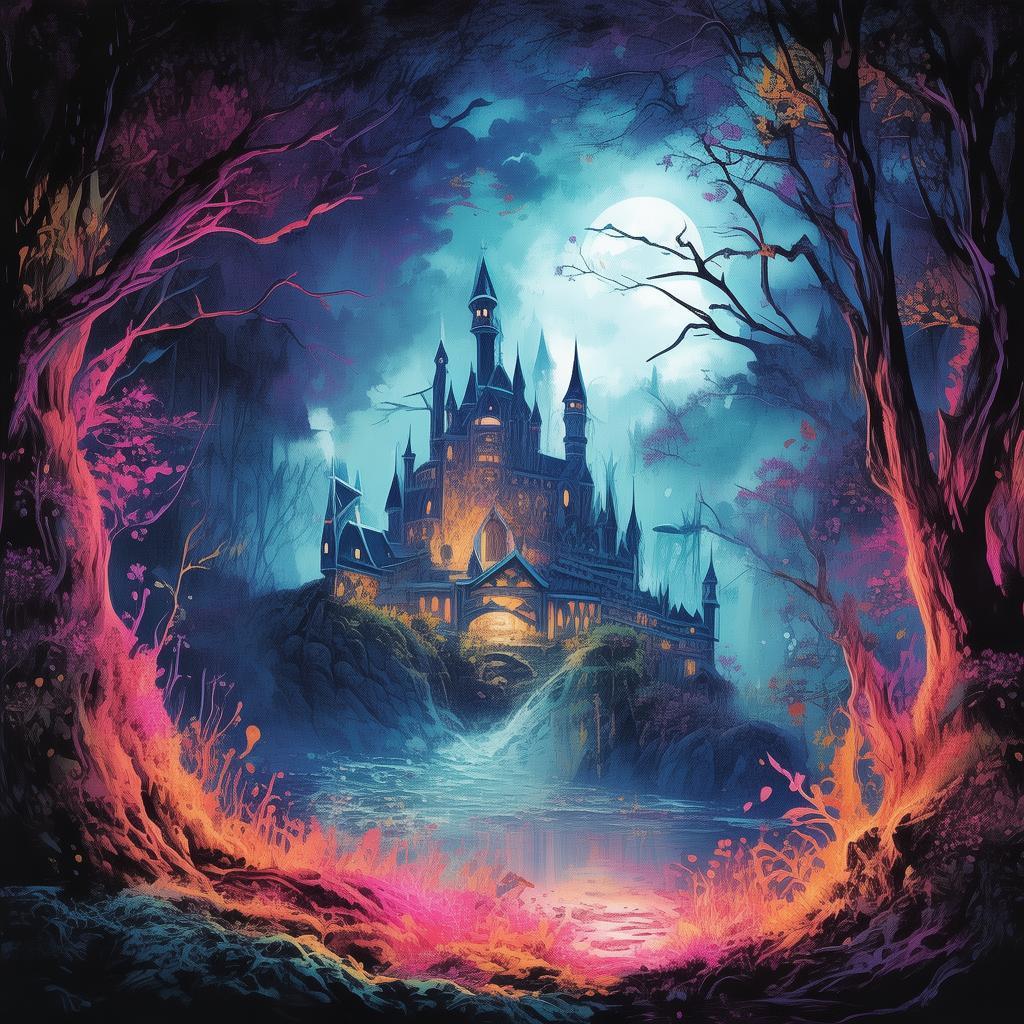The Phantom Director's Redemption: A Tale of the Damned
The city of Eclipsa was a place where shadows danced in the corners of the most illuminated streets. It was a city of whispers, where secrets whispered through the wind like the leaves of a thousand silent trees. In the heart of Eclipsa stood the grand theater, an edifice of opulence and mystery, known to the denizens as the "Phantom's Stage."
The Phantom Director was a legend in his own right, a figure cloaked in the shadows of the stage, whose name was whispered with both awe and dread. He was a maestro of the macabre, whose plays were a symphony of horror and despair. They said he could make the dead speak and the living weep. His latest production, "A Tale of the Damned," was set to become his magnum opus, a final act that would cement his place in the annals of the city's folklore.
Amidst the backdrop of the theater's impending grand opening, a young actress named Elara found herself ensnared in a web of deceit and danger. Her character in "A Tale of the Damned" was the protagonist, a soul bound for damnation who sought redemption in the final moments of her life. As the play's opening night approached, Elara began to feel an inexplicable connection to her character, a haunting presence that seemed to pull her deeper into the Phantom Director's shadow.

One evening, as the moon hung like a blood-red coin in the sky, Elara received an anonymous letter. It contained a single word: "Redemption." Her curiosity piqued, she sought the advice of her mentor, an old theater critic named Marcus, who had known the Phantom Director for years.
"Elara," Marcus began, his voice tinged with a mix of respect and sorrow, "the Phantom Director is not just a man; he is a myth, a ghost that haunts the stage. The word 'redemption' could be his final act, or it could be a trap."
Determined to uncover the truth, Elara delved deeper into the story behind the story. She discovered that the Phantom Director had once been a brilliant actor, whose life was marred by a tragic love affair. His wife, a famous actress, had been poisoned by a rival, and in his grief and anger, he turned to the dark arts of theater, using his plays as a medium to express his sorrow and anger.
The Phantom Director's latest play, "A Tale of the Damned," was a retelling of his own story. Elara realized that the protagonist's journey was her own, and the word "redemption" was a key to unlocking the director's heart.
As the opening night approached, Elara felt an urgency to find the Phantom Director. She knew that if she could reach him, she might find the answer she sought. She set out for the theater, her heart pounding with a mix of fear and hope.
Upon her arrival, Elara found the Phantom Director in his dressing room, a figure cloaked in darkness, his eyes alight with a fire that had long since died in his life. She stepped forward, her voice trembling.
"Director," she began, "I have come seeking redemption."
The Phantom Director looked at her, his eyes softening for the first time in what felt like an eternity. "You have found it, young actress," he said, his voice a whisper. "Redemption is not in the words we speak, but in the actions we take."
Elara realized that the Phantom Director was not the monster she had feared. He was a man who had been broken by love and loss, but who had found a way to heal himself through his art. She understood that her role in "A Tale of the Damned" was not just a performance; it was a reflection of her own life.
The opening night of "A Tale of the Damned" was a triumph, not just for the Phantom Director, but for Elara as well. As the curtain fell, she felt a profound sense of peace, knowing that she had found her own redemption.
In the weeks that followed, Elara and the Phantom Director became friends, their bond forged in the crucible of their shared experiences. The theater became a sanctuary for both of them, a place where they could escape the harsh realities of the world and find solace in the stories they created.
And so, the legend of the Phantom Director lived on, not as a tale of the damned, but as a story of redemption and the power of the human spirit to overcome even the darkest of times.
✨ Original Statement ✨
All articles published on this website (including but not limited to text, images, videos, and other content) are original or authorized for reposting and are protected by relevant laws. Without the explicit written permission of this website, no individual or organization may copy, modify, repost, or use the content for commercial purposes.
If you need to quote or cooperate, please contact this site for authorization. We reserve the right to pursue legal responsibility for any unauthorized use.
Hereby declared.









